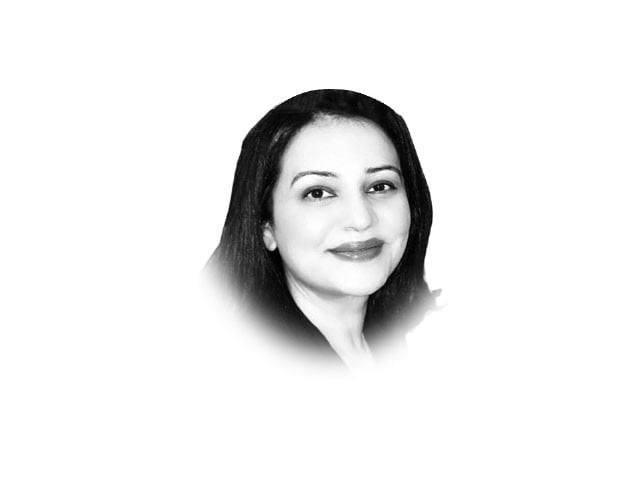Who is afraid of affirmative action with accountability?

Integrity-wise, it is impossible to unsee something once it has been seen. However, in the practical realm, all that appears irrational and unexpected continues to happen without surprising or embarrassing those who are at the helm of such affairs. As I entered the fourth decade of my existence in the expanding social development industry, I took some time to reflect on my trajectory through different lenses. Here, I am sharing a curated slice of information. To keep it straightforward and sensible, I am editing out (at least trying) the noise that manifests as canons of donor funds, conspiracy theories, and chaos of various origins in our dear homeland.
I have worked in the voluntary sector, citizen’s sector, private sector and public sector in various capacities and roles. Gender, community and inclusiveness have remained common denominators in nearly all my diverse areas of work across all regions of Pakistan, as well as in global assignments. I have worked in more than a dozen sectors and subsectors that fall under the umbrella term of human development. The “targeted beneficiaries” are usually disadvantaged people, with prioritised segments being women, youth, and children with overlapping vulnerabilities.
To advocate for their dignity, I interacted with high-profile characters who held de jure and de facto designations as politicians, parliamentarians, policy influencers, power brokers, and beyond. I encountered living realities more fascinating than fairytales, more twisted than Agatha Christie’s plots, and more horrific than Hitchcock’s films. There has never been an uninteresting moment in this journey so far. What could be more ironic than sitting with the abusers in seminars on VAWG, witnessing accolades given to habitual harassers at workplaces, or seeing them receive prestigious fellowships and terminal degrees in feminism or GBV?
One oft-repeated recommendation in our development-oriented conversations has been the urgent need for affirmative action, tied with accountability mechanisms. These measures are intended to transform the conditions and elate the positions of marginalised people. For example, concerning youth and children, such initiatives aim to enhance their visibility, facilitate their participation, ensure financial stability and improve educational opportunities.
Affirmative action for women in the formal economy would impact their status and well-being. They may face less misogyny, experience greater protection from harassment at workplaces and encounter fewer penalties for motherhood. It might be interesting and useful for many readers to know two stories about the value of affirmative action. The first story is about how age relaxation for CSS exams and subsequent permission to keep a child in the Civil Services Academy opened new avenues for an outstanding single mother.
Somewhere in the years 1981-82, an unusual age relaxation was granted by the then President, Gen Ziaul Haq, using his special prerogative to a woman who was on the verge of a divorce, enabling her to sit for the CSS examination. That brilliant woman, after passing the exam with flying colors, was also granted special permission to keep her under-5 son while being trained at the Civil Services Academy in Lahore, Pakistan. This unique example of the state’s responsiveness towards a single mother, especially in a repressive regime, has remained buried in the memories of official files. This may be due to the overshadowing of the magnificent achievements of that officer in the world of literature, poetry and academia. That woman officer was the legendary Parveen Shakir (1952-1994).
Another instance of affirmative action for candidates with visual impairments through CSS exams gave Pakistan the celebrated civil servant, Ms Saima Saleem. In the former instance, the military dictator was somehow persuaded by the popularity and magnetism of the candidate. In the latter, another dictator, the late Gen Pervez Musharraf, was inspired by the exceptional daughter (whom he affectionately called “Chotto”) of his dear friend Brigadier Niaz. The amazing woman, the late Saima Niaz, had herself experienced discrimination due to being blind.
Fostering societal egalitarianism through the preferential care of socioeconomically deprived people should have been the utmost priority of our legislators and policymakers. Alas! We all know where the attention goes. Understanding the challenges and breakthroughs within a broader political and social framework requires a deeper connection with the realities of the land and should not be derived from hastily written reports and journalistic pieces where many times the COI is not declared.
The dismal ranking of the country on nearly all indicators of human development, equality, justice and transparency — despite its commitment to nearly all international instruments on human rights, women’s rights, transgender rights, disability rights, minority rights and employment rights — demands swift sanctions on all elements of elite culture and entitlements.
I do not perceive that the high-influence stakeholders here are even ready to admit the omnipresent forms of injustice and embedded brutality. There seems to be no will (setting aside those who use social media blatantly while sitting abroad, elites guilelessly reprimanding elitism, or those who have the luxury of never being grilled) to seriously examine privilege (often pungent) and power (often abusive). Hence, the essential question remains: who is afraid of affirmative action with accountability? It may remain unanswered, if not unheard or unseen.













COMMENTS
Comments are moderated and generally will be posted if they are on-topic and not abusive.
For more information, please see our Comments FAQ